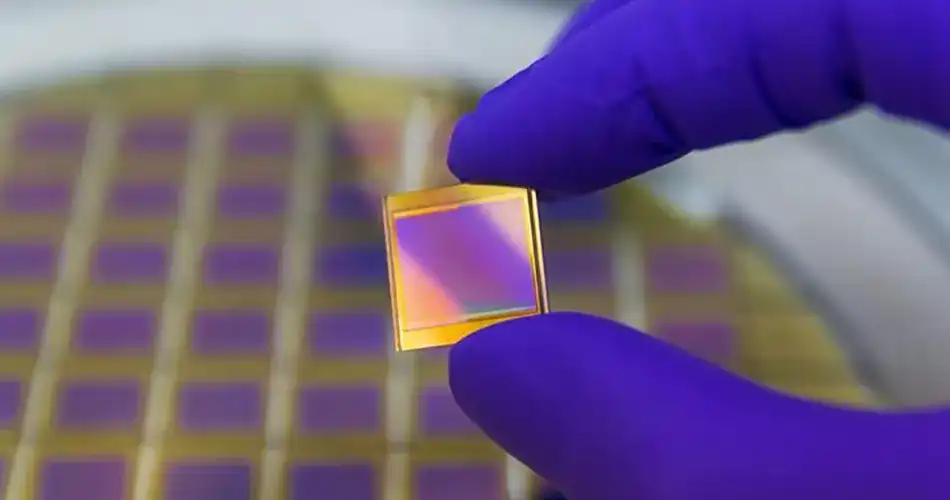The chip war: “There is a race between Mexico and Southeast Asia to attract companies that will leave China”.
The chip war has economic but also national security implications. In the midst of this technological race, Mexico can take advantage of its advantages and benefit from the new international scenario.
Why is there so much fuss about the chip war if, at the end of the day, it is just another trade battle between the United States and China, someone asked the other day.
What I didn’t know is that the country that dominates the semiconductor industry will practically have the international economy in its hands.
Chips are the lifeblood of the modern economy and the brains of all electronic systems from mass consumer products such as cars, phones or computers, to fighter planes.
“The military industry has become increasingly dependent on advanced semiconductors for computer systems, sensors, and the ability to communicate,” says Chris Miller, associate professor of International History at Tufts University (Massachusetts), who specializes in economic, technological and political affairs, in an interview with BBC Mundo.
Semiconductors are also the driving force behind innovations that will revolutionize the way we live, such as artificial intelligence and quantum computing.
While the U.S. remains a leader in chip design, most of the manufacturing is done overseas. In fact, most of the most technologically advanced chips are manufactured in Taiwan.
And as political tension has grown in recent years over the possibility that China might decide to invade the island, concern has also grown in the U.S. over the vulnerability of semiconductor supply.
Moreover, when the pandemic caused cuts in supply chains and companies realized that, despite having low costs, they could not depend exclusively on China, they began to look to other countries with the idea of relocating their operations.
“And why not Mexico?” says Chris Miller.

Chris Miller
Many firms have begun to set up shop in other Asian countries, but Mexico is also in the race to attract those investments.
“There is a great opportunity for Mexico,” argues in this interview with BBC Mundo the author of books such as “The Chip Wars”.
What role can Mexico play in the semiconductor war between the United States and China?
There are many parts to the semiconductor manufacturing process. You have the design, the production of tooling, the actual manufacturing of the chips, the packaging before they are shipped to the end consumer. No one country is particularly focused on all phases.
Mexico can play an important role in assembly and packaging. The country already has a well-developed assembly industry in the automotive or medical device sectors.
So Mexico can expand that advantage into the chip assembly and packaging industries.
What do the semiconductor companies say?
If you listen to the technology manufacturing companies, their interest is in rebalancing their supply chain so that they are not so dependent on East Asia.
Currently, most of the chip industry’s assembly and packaging is done in East Asia, in countries like China and Taiwan.
There are many companies that would like to see more chip assembly and packaging in North America.
But so far it hasn’t happened….
So far it hasn’t happened. I think Mexico has the geography, the industrial base, the cost structure to make assembly and packaging viable.
Even if it is not part of the countries that stand out for manufacturing advanced technology?
Semiconductors are advanced technology, but they require manufacturing and that is where Mexico has advantages.
In addition to cars and medical devices, Mexico also assembles servers and computers.
As companies are looking to shift the supply chain away from China, more computers and servers will need to be assembled in Mexico in the future. All of those products need semiconductors.
So, I don’t think it’s correct to say that Mexico doesn’t have the technological base to join the shift. There are a number of industries that use a lot of semiconductors and would be very excited to see Mexico play a major role in assembly and packaging.
How is Mexico going to attract investment from chip manufacturing firms if it doesn’t have a plan specifically designed to achieve that goal?
Mexico needs to do more in developing a strategy. Ultimately companies are going to make investment decisions motivated by a business rationale, but the government can help by making sure that tax incentives are designed in the best possible way to make them attractive to companies.
The second is that government can help by making sure that companies have the electricity, water and clean energy supplies that are needed to attract long-term investment.
And finally, probably the most important part, is that there is an ecosystem large enough for the development of economies of scale to reduce costs, as China, Vietnam or Taiwan have done.
Mexico has this in certain industries such as automotive, but does not have it in semiconductor industries or in the production of certain electronic components.
The government can do more to make companies realize that there is interest in developing this industry and in solving the problems that companies face. The more investment you can attract, the more interest there will be in the future for new investment to come in.
In the midst of this chip war between the United States and China, would you say then that Mexico has a great commercial opportunity?
Yes, there is a great opportunity for Mexico. And the opportunity not only has to do with the race for semiconductors between the US and China, I think every multinational company that is in China is evaluating what to do with their manufacturing.
It is not only US companies, but also Japanese, Korean and Taiwanese companies are interested in shifting their manufacturing production to other countries.
In the last two decades Mexico has lost opportunities because many companies have moved to China, but that era is over.
Now there is a race between Southeast Asia and Mexico to attract companies that are going to leave China. It is one of those once-in-a-generation opportunities.
What benefits can Mexico achieve if it can enter the semiconductor supply chain?
The creation of high-quality, high-paying jobs that are relatively high-tech. There is a reason why all countries try to compete to attract these investments.
The semiconductor industry can have an impact on a country’s economic growth. Chips are high value-added, advanced technology.
Certainly a North American-focused supply chain would be less vulnerable to potential disruptions.
As tensions between China and Taiwan rise, there is greater concern on the part of large companies.
What challenges does Mexico face in getting into the game?
The main challenge Mexico faces is that there are many countries competing to attract investment for the semiconductor industry, including some countries that have developed large electronics ecosystems and are more focused on attracting the investments that are coming out or are going to come out of China.
The Mexican government has to be more strategic in attracting companies and has to demonstrate that the country is the right place for this type of industry.
Is it possible for the country to achieve this?
It is possible that Mexico will go on to play a more important role in electronic supply chains, but I am not an expert on Mexican politics.

